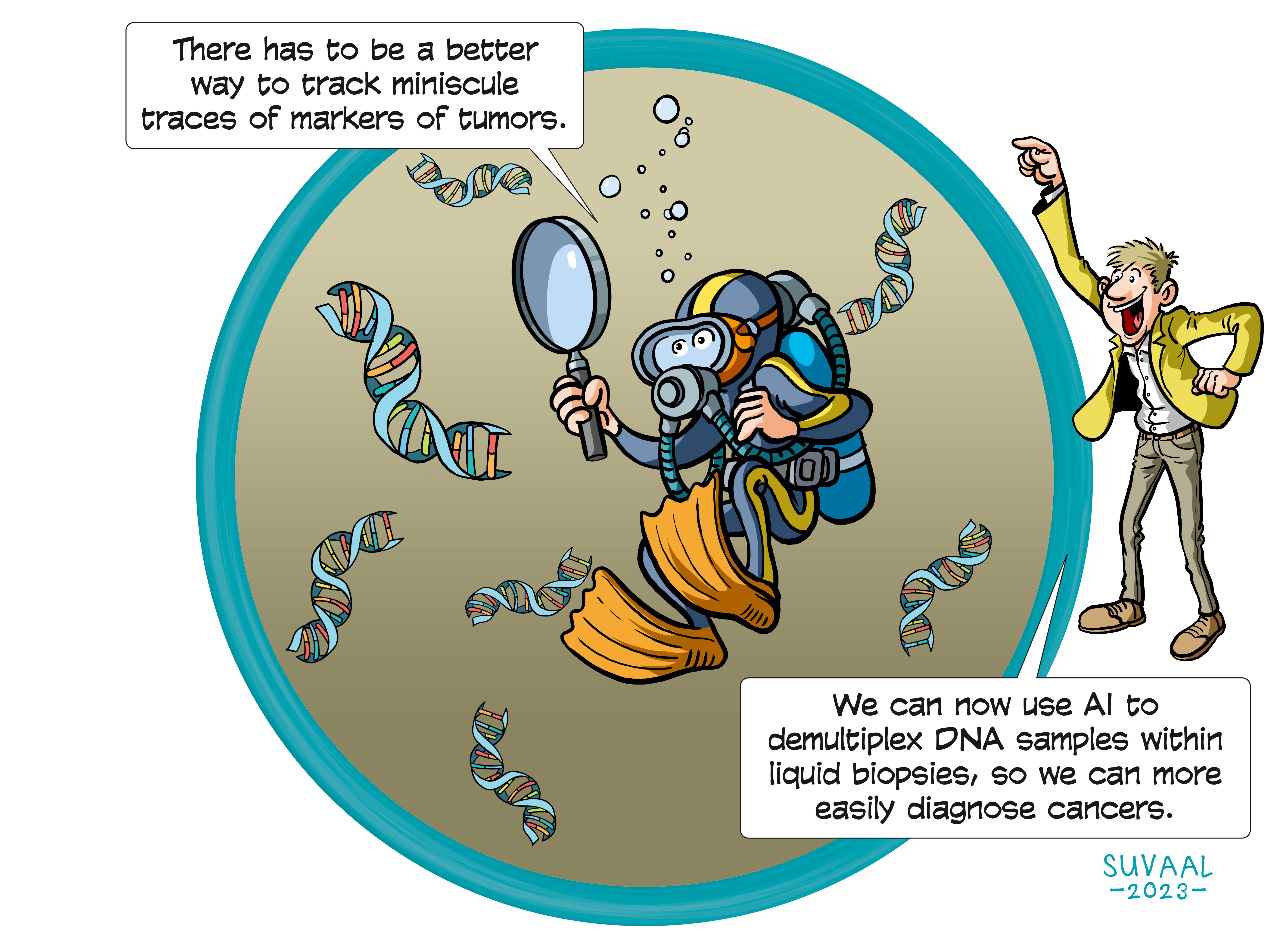Tracing cancer from liquid biopsies using computational modelling
Research Themes: Software Technology & Intellligent Systems, Life Science & Health


A TRL is a measure to indicate the matureness of a developing technology. When an innovative idea is discovered it is often not directly suitable for application. Usually such novel idea is subjected to further experimentation, testing and prototyping before it can be implemented. The image below shows how to read TRL’s to categorise the innovative ideas.
Summary of the project
All living cells are replaced on a regular basis. The human body removes these dead cells as efficiently as possible, often via a liquid phase such as blood or urine. DNA is one of the rest materials that can be find in these liquids. DNA of tumor cells is different from a person’s own DNA and can also be found in these liquids. The researchers aim to develop computational methods that can be used to detect such traces of tumor DNA from the mixed pool of DNA measured in liquid bio samples. This can be done by finding traces of specific DNA markers for each type of tumor. This is, however, complicated as the amount of tumor DNA in a liquid sample is very small, resulting in noisy measurements. The researchers use AI technologies to tackle these challenges. For example, to learn a set of powerful DNA markers. When being able to demultiplex the DNA signal within liquid biopsies, easy screens can be setup to diagnose cancer early or to follow the progression of therapies.
What's next?
This research is still in an initial phase, i.e. computational methods need to be established. A next step is to create reference atlases of tumors, so that various cancers can be traced. Moreover, the diagnostic power of these methodologies should be tested in a clinical context. Next to traces in the DNA, there are also traces of methylations of the DNA. The researchers are also investigating this type of data with which also aging processes in general can be tracked.
With or Into AI?
Both
Dr. Marcel Reinders
Dr. Joost Gribnau (EMC)
Dr. John Martens (EMC)
Dr. Lodewyk Wessels (NKI/TUD)
Dr. Stavros Makrodimitris (EMC/TUD)
Faculties involved
- EEMCS
